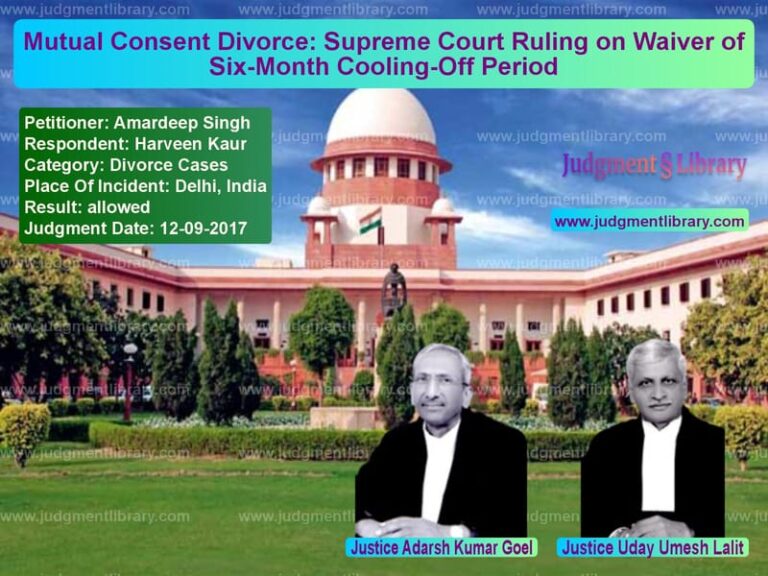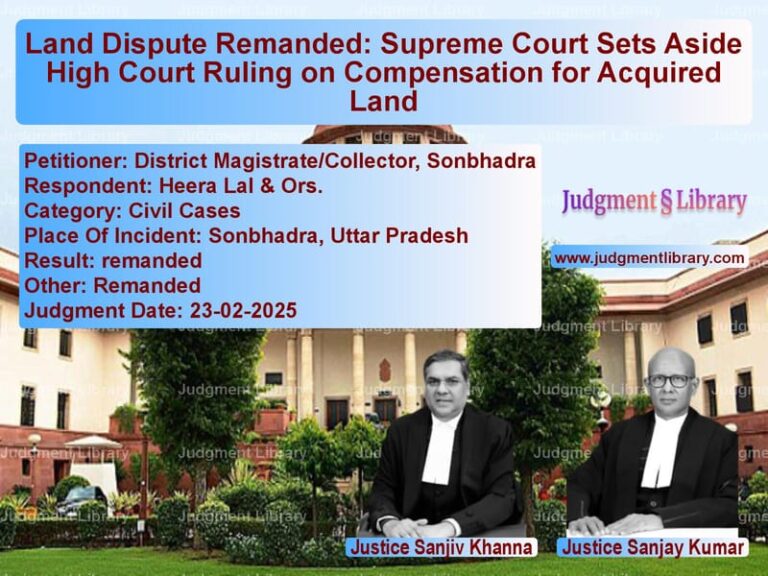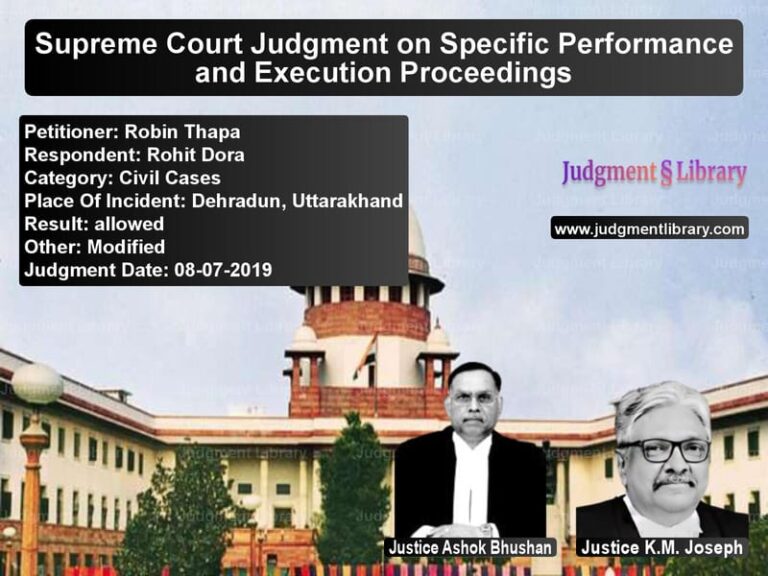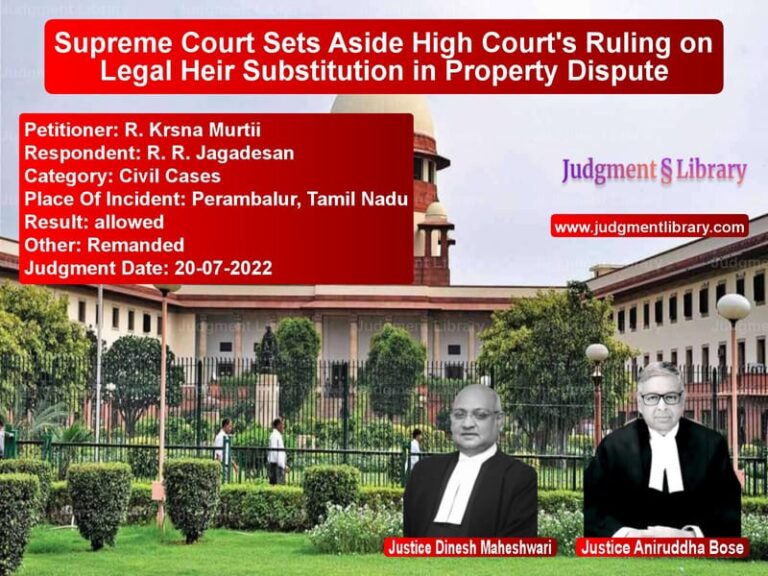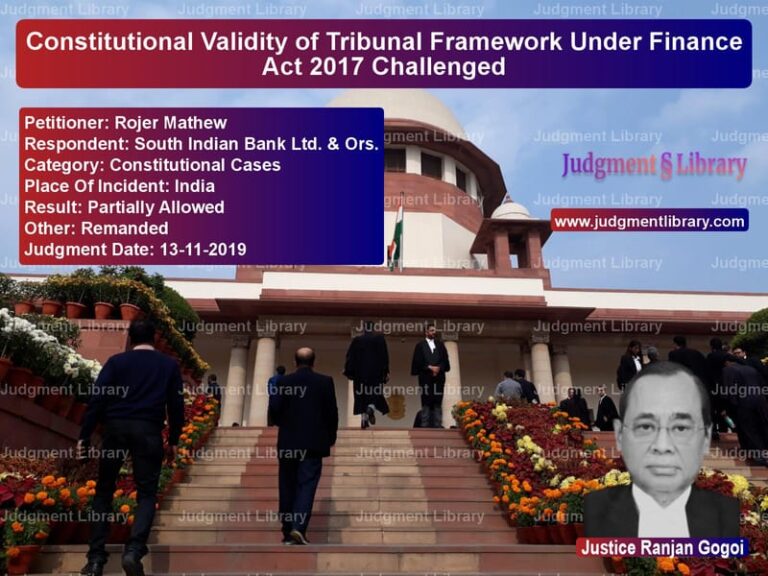Gratuity for Daily Wage Workers: Dhansai Sahu vs. State of Chhattisgarh
The case of Dhansai Sahu vs. State of Chhattisgarh raises a crucial question regarding the applicability of the Payment of Gratuity Act, 1972 to workers who initially served as daily-wage employees before being regularized as government servants. The Supreme Court was tasked with determining whether the period of service rendered as a daily-wager before regularization could be counted for gratuity payments post-retirement.
Background of the Case
The appellant, Dhansai Sahu, worked as a daily-wage employee under the Chhattisgarh government before his services were regularized. Upon his retirement, he sought gratuity benefits, arguing that his total tenure, including his years as a daily-wager, should be considered for computing his gratuity under the Payment of Gratuity Act, 1972 (referred to as “the 1972 Act”).
The High Court of Chhattisgarh, however, ruled that the provisions of the 1972 Act were not applicable to a government servant governed by the Chhattisgarh Civil Services (Pension) Rules, 1976 (referred to as “the 1976 Rules”). Dissatisfied with the High Court’s judgment, Dhansai Sahu appealed to the Supreme Court.
Arguments of the Appellant
The appellant, Dhansai Sahu, contended that:
- He had worked continuously for several years, including a long tenure as a daily-wage worker before his regularization.
- The 1972 Act is a welfare legislation aimed at providing financial security to employees upon retirement, and thus, he was entitled to its benefits.
- The High Court erred in holding that the 1972 Act did not apply merely because he was a government servant at the time of retirement.
- The judgment in Netram Sahu vs. State of Chhattisgarh supported his claim, as the Supreme Court had ruled in favor of a similarly situated worker, granting gratuity benefits.
Arguments of the Respondents
The State of Chhattisgarh countered the appellant’s arguments, asserting that:
- Since Dhansai Sahu held a government post at the time of retirement, his gratuity was governed by the 1976 Rules, not the 1972 Act.
- Rule 3(i) of the 1976 Rules explicitly covered “service gratuity,” “death-cum-retirement gratuity,” and “residuary gratuity,” making the 1972 Act inapplicable.
- Section 2(e) of the 1972 Act states that the Act does not apply to persons governed by other service rules providing for gratuity payments.
- The Supreme Court’s decision in Bharat Sanchar Nigam Ltd. vs. Teja Singh had established that daily-wage service prior to regularization does not count toward gratuity eligibility.
Key Observations of the Supreme Court
The Supreme Court reviewed relevant legal provisions and previous judgments, including:
- The Payment of Gratuity Act, 1972, which ensures gratuity benefits for employees upon retirement.
- The Chhattisgarh Civil Services (Pension) Rules, 1976, which govern the gratuity and pension rights of government employees.
- The judgment in Netram Sahu, which had allowed gratuity benefits for a similarly placed employee.
- The decision in Teja Singh, which ruled that daily-wage service could not be counted toward gratuity.
After weighing these factors, the Court found that there was a conflict between its previous decisions in Netram Sahu and Teja Singh. To ensure judicial consistency, it deemed it necessary to refer the issue to a larger bench.
Verbatim Court Findings
The Supreme Court noted:
“Reverting back to Section 2(e) of the 1972 Act, the same in no uncertain terms provides that if a person holds a post under the Central Government or a State Government and is governed by any other Act or by any rules providing for payment of gratuity, the provisions of the 1972 Act will have no application.”
Additionally, the Court observed:
“Ordinarily, we would have proceeded to decide the matter on the construct of the relied upon Rules, but as noted above, the exposition by the coordinate Bench of two Judges of this Court in the unreported decision of Teja Singh (supra) will also have to be taken note of and to observe judicial propriety, we deem it appropriate to refer the issue under consideration to be considered by a larger Bench of three Judges.”
Final Judgment
The Supreme Court did not deliver a final verdict on whether Dhansai Sahu was entitled to gratuity benefits. Instead, it directed that the matter be placed before a larger bench for further consideration. This decision underscores the need for a uniform interpretation of gratuity laws for employees transitioning from daily-wage roles to regular government positions.
Final Verdict: Issue referred to a larger bench.
Petitioner Name: Dhansai Sahu.Respondent Name: State of Chhattisgarh & Ors..Judgment By: Justice A.M. Khanwilkar, Justice Dinesh Maheshwari.Place Of Incident: Chhattisgarh.Judgment Date: 21-01-2020.
Don’t miss out on the full details! Download the complete judgment in PDF format below and gain valuable insights instantly!
Download Judgment: Dhansai Sahu vs State of Chhattisgar Supreme Court of India Judgment Dated 21-01-2020.pdf
Direct Downlaod Judgment: Direct downlaod this Judgment
See all petitions in Pension and Gratuity
See all petitions in Employment Disputes
See all petitions in Judgment by A M Khanwilkar
See all petitions in Judgment by Dinesh Maheshwari
See all petitions in Remanded
See all petitions in Remanded
See all petitions in supreme court of India judgments January 2020
See all petitions in 2020 judgments
See all posts in Service Matters Category
See all allowed petitions in Service Matters Category
See all Dismissed petitions in Service Matters Category
See all partially allowed petitions in Service Matters Category


